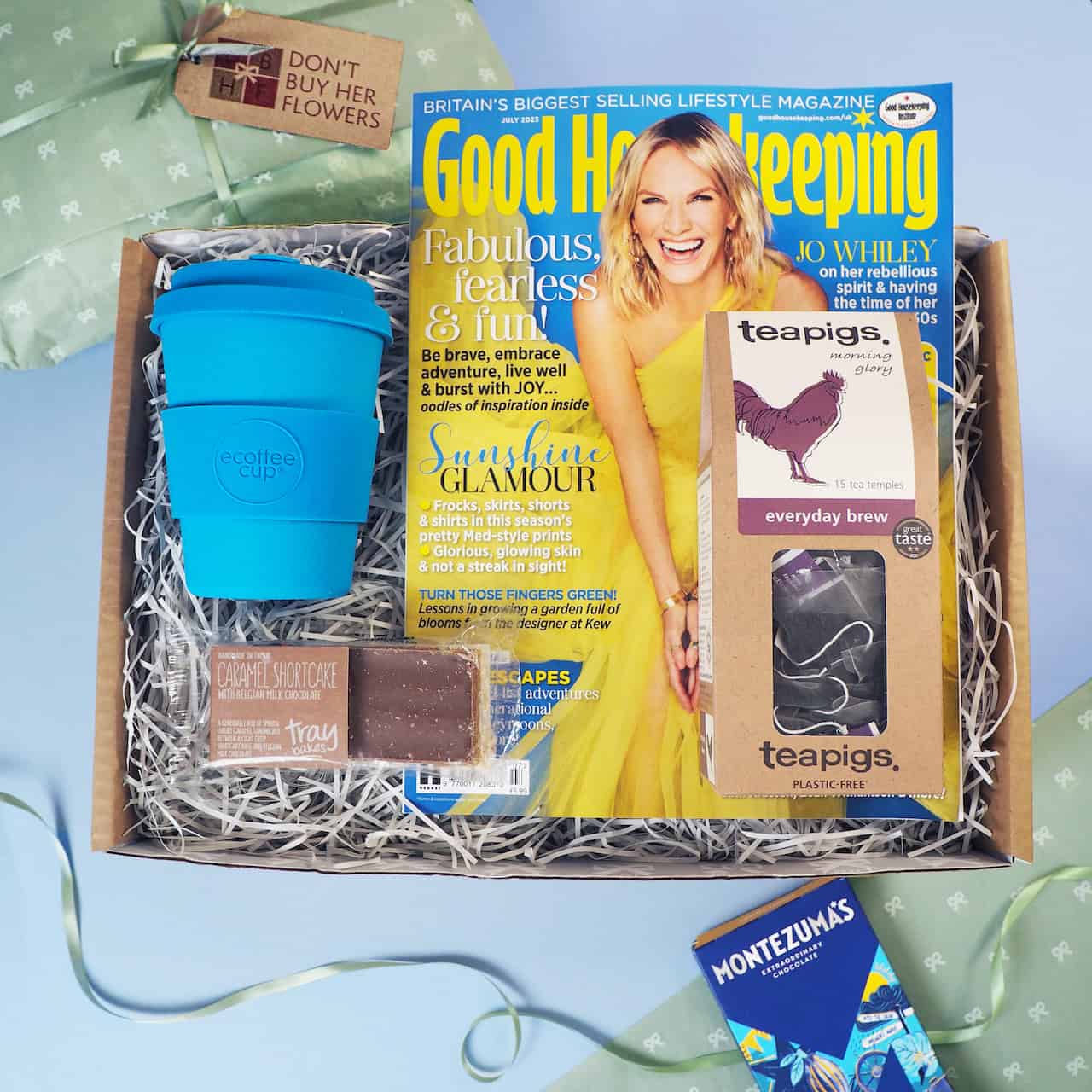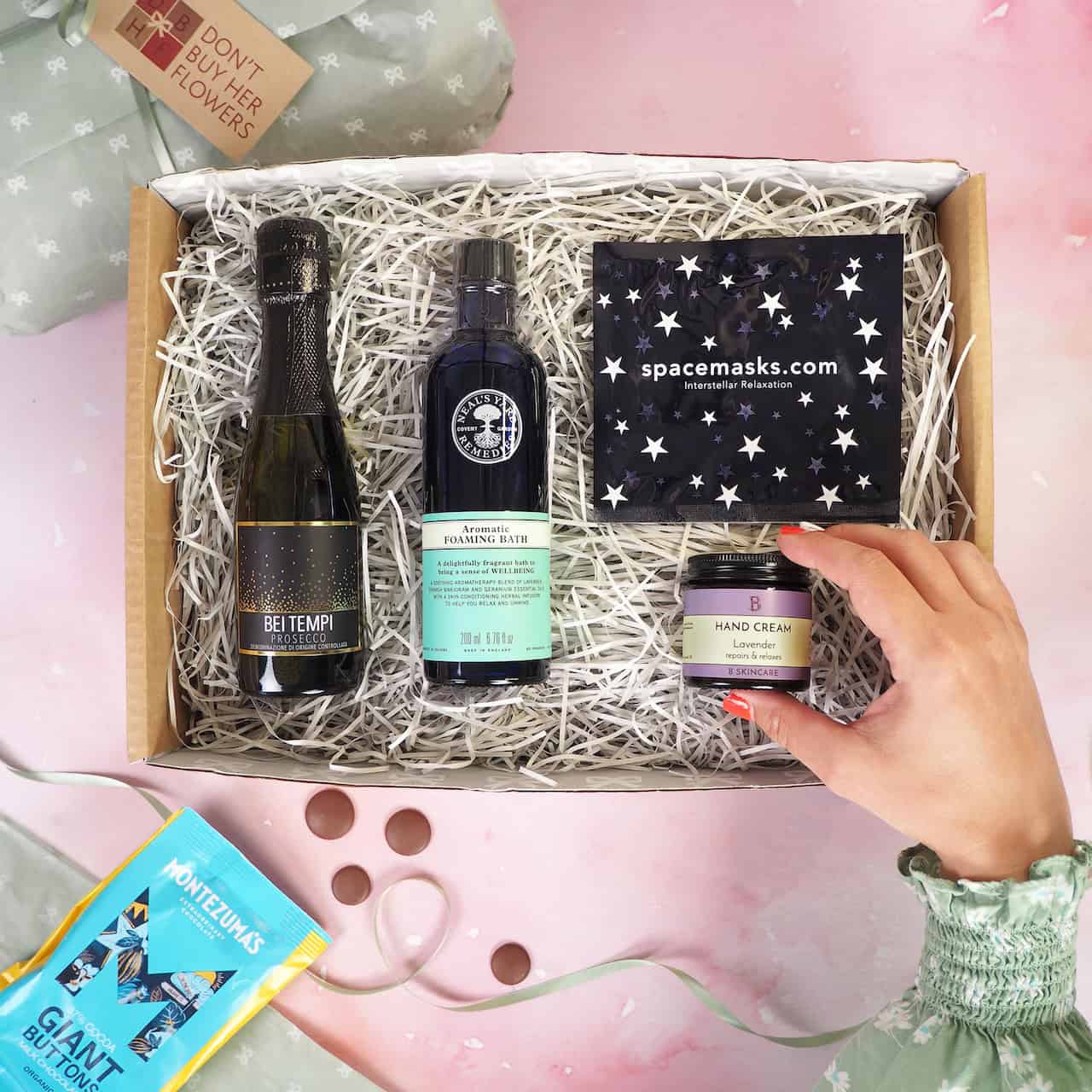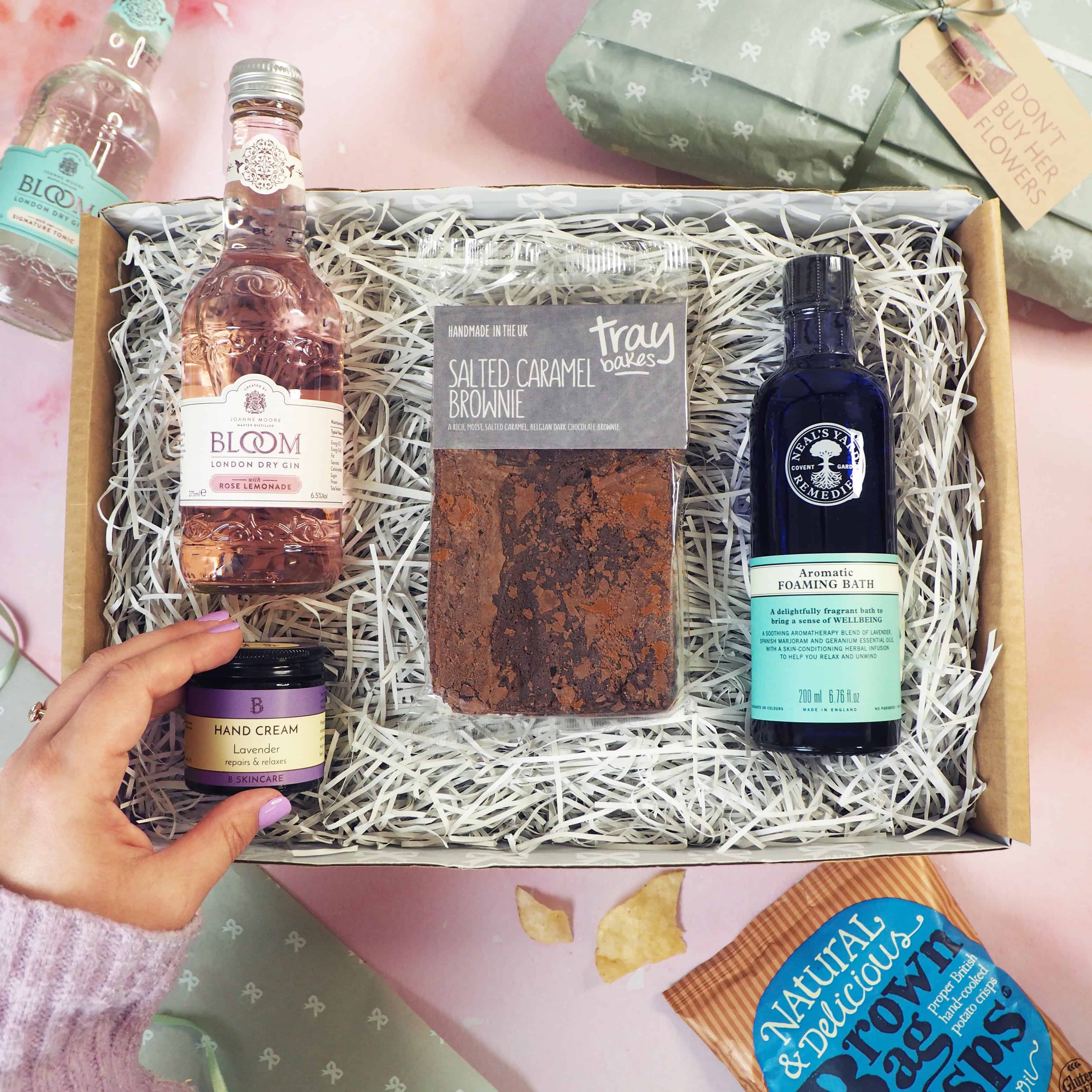Menopause Specialist & GP, Dr Charlotte Gooding and Don’t Buy Her Flowers Founder, Steph Douglas discuss the value of friends and family during midlife and menopause
At this ‘rush hour’ stage in life, women are juggling more responsibility at work, young families that are still dependant, parents who might increasingly need them and we’re young enough to still want a social life and to not look terrible while having it! TLC is the second biggest reason customers send our packages (after birthday) and a lot of this coincides mental and physical changes of midlife, and our customers are sending gifts to someone juggling this rush hour.
Don’t Buy Her Flowers is a bespoke gifting company with thoughtfulness at its core. Founded by mother of three, Steph Douglas, the business was inspired by a need for personalised gifts that encourage moments of connection when you can’t physically be there, or you don’t know what to do or say. As a challenging transition for many women, Don’t Buy Her Flowers met with Dr Charlotte Gooding to discuss the importance of sending support to friends and family struggling with midlife, and the symptoms of menopause and perimenopause.

Menopause Awareness Month is about driving the conversation around the challenging symptoms that women experience during this phase of their lives, as well as the support options (or lack of) available to them. Ahead of October, Steph and her team invited Menopause Specialist and experienced GP, Dr Charlotte Gooding, to talk about the difficulties of both emotional and physical exhaustion during midlife. Charlotte shared with us her experiences, and the joy she found sending, “meaningful gifts to people at tricky times in their lives – in fact all the things in the box I have gifted to friends before”.
Taking a largely ‘holistic approach’ to menopause care and midlife health, Dr Charlotte Gooding advises women to prioritise the value of sleep, nutrition, movement and relaxation in order to relieve uncomfortable symptoms and ensure that women are taking time for themselves. Uncomfortable menopausal symptoms can range from night sweats, anxiety, irritability, reduced libido and bladder problems, however, they vary widely from person to person. Charlotte reminds us that there is no “golden elixir” or quick fix, , and the most important thing is that women have access to all the information, alongside support from family and friends.

Using the ‘Create Your Own’ option, building a Midlife Care Box with Don’t Buy Her Flowers is easy and stress free, entirely customisable to the individual and their symptoms. Items are available for helping women to ease their symptoms, or to simply remind them that they are loved and cared for. The products listed below are amongst the wide range of items customers can choose from:
· Neal’s Yard Foaming Bubble Bath
· B Skincare Muscle Rub & Lavender Hand Cream
· This Works Deep Sleep Pillow Spray & Luxury Silk Eye Mask
· Montezuma’s Giant Milk & White Chocolate Buttons
· £45 Cook Voucher
· Selection of Fiction & Non-Fiction books (e.g. Wise Words for Women by Donna Lancaster)
Each gift box is beautifully wrapped, and signed using a handwritten tag, giving every package that special personalised touch.
Don’t Buy Her Flowers is more than the UK’s leading thoughtful gifting company; Steph has also built a trusting online community that is a space for when everyone needs a moment of thoughtfulness or support. At the heart of the community is the Don’t Buy Her Flowers podcast. The podcast aims to bring reassurance to a wide community of people who may also be feeling overwhelmed or struggling with the pressures of modern life, with Steph taking the opportunity to laugh (and cry) with her listeners about the not-so-glamourous parts of life.

The podcast has had over 250k downloads and welcomed a whole host of renowned guests to join Steph in discussing the up’s and downs of parenthood, relationships and life. Celebrity singer Jessie Ware and DJ Annie MacManus, have even joined the Don’t Buy Her Flowers podcast to share their own experiences of coping with the ‘rush hour’ of life that many of us find ourselves in.
